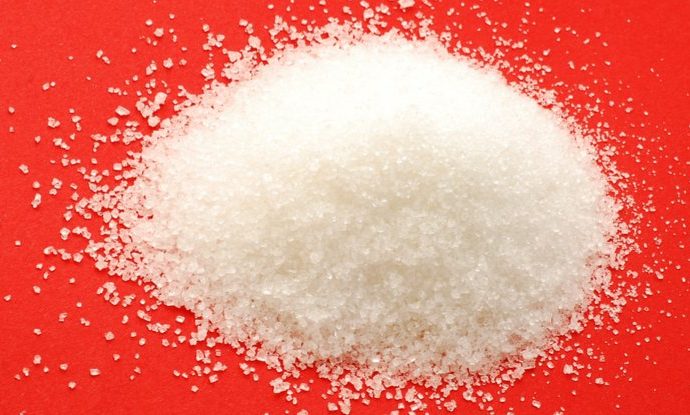This is huge.
There’s a long-known relationship between cancer and sugar, but figuring out exactly how it works has proven elusive. Now, thanks to a nine-year research project, scientists have made a breakthrough.
They’ve narrowed down the mechanism whereby cancer cells metabolise sugar.
The focus of the new research was on a metabolic effect that has been understood for over 90 years.
We know that almost all the cells in the human body require energy, and they derive this energy from the sugars in the food we eat. Cancer cells also require sugars to grow. But their glucose intake is a lot higher than that of healthy cells, as is the rate at which they ferment that glucose into lactic acid.
This is known as the Warburg effect, and it may, scientists have hypothesised, have something to do with cancer’s rapid growth rate. But it’s hard to determine whether the Warburg effect is a symptom or a cause of cancer.
It’s been proposed that the growth of cancer cells may be stymied by starving them of sugar, but the problem with that is there’s currently no method of cutting off the supply to cancer cells while keeping it open to normal cells.
This is why the biological mechanism behind the increased glucose metabolism is important. It may hold the key to starving cancer cells while keeping healthy cells functioning. We’re not there yet, but this research brings us a critical step closer.
“Our research reveals how the hyperactive sugar consumption of cancerous cells leads to a vicious cycle of continued stimulation of cancer development and growth,” said researcher Johan Thevelein from KU Leuven in Belgium.
“Thus, it is able to explain the correlation between the strength of the Warburg effect and tumour aggressiveness. This link between sugar and cancer has sweeping consequences. Our results provide a foundation for future research in this domain, which can now be performed with a much more precise and relevant focus.”
The team used yeast cells for its research – specifically looking at the ‘Ras’ gene family, a family of genes that is present in all animal cells, including human cancer cells. This makes the study of Ras mutations in yeast an increasingly useful tool in cancer research.
Yeast also has highly active sugar metabolism, yet doesn’t have the additional regulatory processes of mammalian cells that can conceal underlying processes.
“We observed in yeast that sugar degradation is linked via the intermediate fructose 1,6-biophosphate to the activation of Ras proteins, which stimulate the multiplication of both yeast and cancer cells. It is striking that this mechanism has been conserved throughout the long evolution of yeast cell to human,” Thevelein said.
In lay terms, the researchers found that the yeast that had an overactive influx of glucose caused the Ras proteins to activate too much, which would then allow the cells to grow at an accelerated rate.
He was, however, careful to note that this research, while important, is one step in a much larger process – and that a breakthrough in research is not the same thing as a medical breakthrough.
“The findings are not sufficient to identify the primary cause of the Warburg effect,” he added. “Further research is needed to find out whether this primary cause is also conserved in yeast cells.”
The team’s research has been published in the journal Nature Communications.
Source: Science Alert

































Leave a Comment
You must be logged in to post a comment.